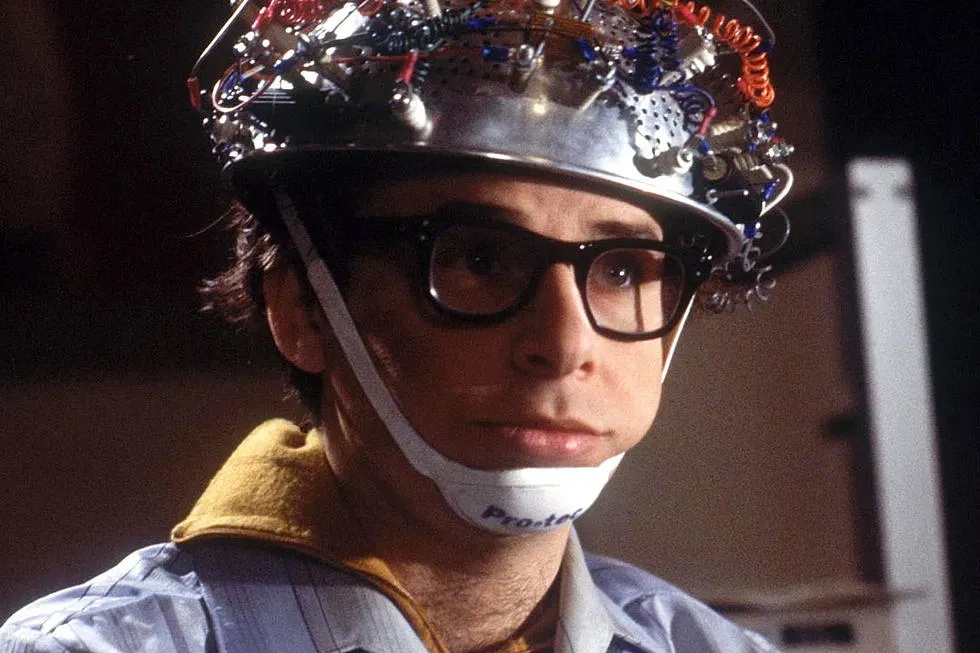Of Rumination and Revelation: Living with ADHD

Fifteen years ago, I walked out of a doctor's office with a diagnosis of Generalized Anxiety Disorder (GAD) and Depression. At the time, it seemed to explain everything: the fatigue, the difficulty starting projects, the restlessness I couldn't shake. I was told that SSRIs (Selective Serotonin Reuptake Inhibitors) could even things out. But the meds—Prozac, Celexa, Lexapro, Zoloft, Paxil—didn't do much.
I assumed I was broken in ways medicine couldn't fix. Turns out I wasn't broken, just misdiagnosed. Inspired by a recent episode of Last Podcast on the Left in which co-host Marcus Parks revealed that he had been misdiagnosed as bipolar for 20 years before learning he had ADHD, I did some research and decided to get tested.
I spoke with my doctor and got referred to Charlotte Attention Specialists and, after going through comprehensive testing, discovered that I, too, have been living with ADHD. Suddenly, my life made sense in a way it never had before.
I got a garbage brain that's drivin' me insane — "Human Fly" by The Cramps
What ADHD Really Is
ADHD, or Attention-Deficit/Hyperactivity Disorder, is a neurodevelopmental condition that affects how the brain regulates attention, impulses, and executive function. It's not about being "lazy" or "scatterbrained," and it's certainly not just about being hyperactive. At its core, ADHD involves differences in how the brain processes dopamine and norepinephrine, two neurotransmitters critical for motivation, focus, and emotional regulation.
In adults, ADHD often presents as:
- Chronic procrastination and difficulty starting or finishing tasks.
- Trouble coping with stress and regulating emotions.
- Low frustration tolerance—feeling overwhelmed or irritated quickly.
- Intrusive, obsessive, and ruminating thoughts that replay on a loop.
- Restlessness, even when sitting still.
- Forgetfulness, disorganization, and impaired working memory.
- Periods of hyperfocus, where attention locks onto one thing for hours, often at the expense of everything else.
Living with undiagnosed ADHD, these symptoms pile up. Ruminating thoughts are especially relentless. No matter how hard you try to push them away, they circle back—negative self-talk on repeat. You're lazy. You're failing. Everyone else seems to manage this—why can't you? It's not just frustrating; it's corrosive.
It's estimated that 5-6% of adults in the U.S. have ADHD, but many go undiagnosed. Research shows that 20–30% of adults with ADHD are initially misdiagnosed with depression or anxiety, because the symptoms overlap so heavily. When your brain is constantly fighting distraction and executive dysfunction, the result is stress, exhaustion, and worry—which can look a lot like mood disorders.
Sometimes my mind plays tricks on me. It all keeps adding up, I think I'm cracking up — "Basket Case" by Green Day
How ADHD Shapes My Social Life
ADHD doesn’t just affect how I work—it also changes how I connect with people. Socializing with ADHD can be complicated:
- Attention in conversations: It’s easy to miss details, zone out mid-sentence, or accidentally interrupt. Staying present takes enormous effort, which leaves me drained.
- Impulsivity and oversharing: Sometimes words come out before I've thought them through. Later, I replay the moment endlessly, embarrassed by what I said.
- Emotional sensitivity: Rejection or criticism cuts deeper. Small misunderstandings can feel overwhelming, leading to withdrawal.
The result? Many people with ADHD describe themselves as “homebodies" — myself included. Not because I don’t want connection, but because socializing is exhausting. Being home feels safer and easier: fewer distractions, fewer chances to say the wrong thing, fewer demands on a brain already stretched thin.
And yet, I also crave novelty and stimulation. That’s the paradox—I want connection but often lack the energy or regulation to sustain it. It becomes a push-pull of seeking out social life and retreating to recover from it.
The Misdiagnosis Trap
For years, I thought I was depressed and anxious, because that's what I was told. And while I did feel those things, they weren't the cause—they were the byproduct. Antidepressants dulled some of the edges, but they never addressed the root issue. Meanwhile, I internalized the idea that I was failing at being an adult: that I was lazy, unmotivated, and lacked willpower.
Self-Medicating with Cannabis
When the antidepressants didn't work, I tried to manage it myself—with herbal remedies. At the time, it felt like it helped: it took the edge off, made me feel calmer, gave me a temporary break from the chaos in my head. But what I didn't realize was that cannabis was actually making my ADHD worse.
Effects of Cannabis on ADHD Symptoms:
- Impaired attention and focus: Cannabis interferes with the brain's ability to concentrate, worsening ADHD's core challenges.
- Increased impulsivity: It can heighten impulsivity and hyperactivity, making it harder to regulate behavior and decisions.
- Cognitive impairment: Cannabis disrupts working memory and problem-solving—areas already compromised by ADHD.
- Increased anxiety and paranoia: Long-term use fed the cycle of restlessness, agitation, and racing thoughts.
- Long-term effects: Chronic use can alter brain function in ways that make ADHD symptoms more persistent and severe.
What I thought was relief was really a mask—one that came with its own set of problems. Looking back, I see how self-medicating amplified the very issues I was trying to escape: distraction, impulsivity, anxiety, and the endless spiral of negative thoughts.
When all the things that you've been thinking, have you so confused and so unglued, your head is spinning — "Is This Thing On?" by Less Than Jake
A Different Kind of Clarity
Receiving the correct diagnosis and proper treatment has been nothing short of life-changing. My medication, Vyvanse, doesn't erase ADHD, but it finally gives me the tools to manage it. For the first time, the static in my brain is quiet enough to think clearly. I can focus on tasks without fighting myself. I can handle stress without snapping. And those ruminating thoughts that once pinned me down no longer have the same power they once did.
There's grief in knowing I lost years to misdiagnosis and self-medicating. But there's also relief—because I finally understand myself. ADHD isn't laziness or weakness. It's not a character flaw. It's a brain that works differently, one that needs support and structure.
And now, with that support in place, I'm not just surviving—I'm actually living. I feel like the boulder I've been pinned under my entire life has been lifted. If any of this resonates with you, consider speaking with your doctor about getting tested. I thought I was beyond fixing, but I was just using the wrong tools.
I'm sick of the things I do when I'm nervous
Like cleaning the oven or checking my tires
Or counting the number of tiles in the ceiling.
Head for the hills, the kitchen's on fire!
I used to rely on self-medication.
I guess I still do that from time to time
But I'm getting better at fighting the future
"Someday you'll be fine..."
Yes, I'll be just fine.
"Everything is Alright" — Motion City Soundtrack
